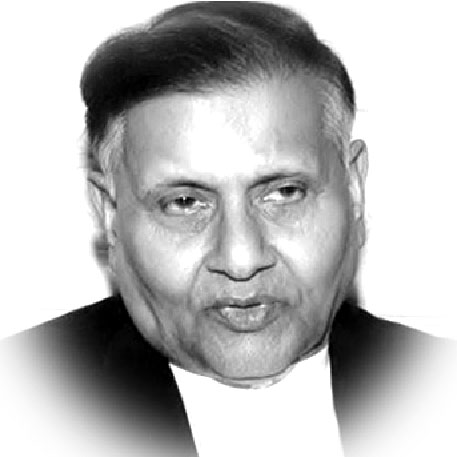Mirza Aslam Beg
Imran Khan introduced “Dharna” in 2014, to bring about regime change. The same now has recoiled back on him, knocking at his doors with greater intensity. The Religious Right under Maulana Fazlur Rahman’s Jamiat-e-Ulema-e-Islam (JUI-F) having remained a marginalized political entity for the last seventy-two year, has suddenly emerged at the centre stage of national politics, knocking at the ‘gates of power” with a mammoth gathering of over 500,000 thousand of his supporters. He is accompanied and supported by the top political leadership of the country, who declared:
Shahbaz Sharif: “Imran is brainless and threat to the country.”
Bilawal Zardari: “Selected governments’ time is up.”
Asfandyar Wali: “Puppet PM must go.”
Mahmud Khan Achakzai: “A failed government has no right to govern.”
The crowd roars “Go Imran go.”
What an irony of fate, that only a few years back, here at D-Chowk, it was none else but Imran demanding ouster of Nawaz Sharif government. He succeeded taking over the government, as its Prime-Minister, with the promise to lead the nation to the lofty goal of a “New Pakistan,” free from corruption and exploitation. But he failed and failed miserably, alienating himself politically, creating more enemies than friends he could make, with the result that the crowd surge of over half a million which now supports Maulana at Islamabad, consists of three main elements:
Maulana’s own party, JI and Tablighi supporters – a diehard disciplined lot.
The broad masses suffering from the ills of Imran’s bad governance, with no hope of improvement of their lot.
The angry youth, who reject liberalism and secularism or any other ism, to their faith.
Imran’s political alienation has been caused because of his strong urge to correct things in haste. He went too far, defaming and degrading his political opponents. He downgraded Parliament – his political bedrock. Imran relied more on the support of the national institutions than the strong political base he had inherited. Seeking spiritual guidance, Imran got lost between Islam, liberalism and the Khankah. He himself admits. “My Islam was selective. I accepted only parts of the religion that suited me. It was not so much out of conviction but love for my mother that I stayed a Muslim” – Arab News/Pakistan Observer.
Thus Imran created a political vacuum, which has now been filled by the ‘Religious Right’ led by shrewd Maulana Fazlur Rehman, who took the lead and gave the call to the opposition to join him. Willy Nilly, the Opposition now stands with him.
Maulana then played real politics and negotiated safe entry into the critical zone of Islamabad, and by mid-night of 31st October, his crowed swelled to over half a million – the “critical mass” that gives him what we call in our military terminology the “Superiority of strategic Orientation” threatening multiple objectives. He is now in a comfortable position to dictate terms. He has put across his first demand: “Prime Minister Imran to resign, in the next two days,” and warned the national institutions, ‘to keep away from interfering,’
The Prime Minister refused to resign; the Army declared to stand by the elected government. Government has decided to go to the court against Maulana’s intransigence as they didn’t consider this crowd a threat to the government. The dye is cast. The Rahbar Committee of the Opposition has declared: “They remain firm on PM resignation, keeping the option of collective resignation from Parliament open, followed by a nationwide lockdown” backed by the Critical Mass of over half-a-million crowd ready to breach the security barrier of police, the Rangers and the Army.
In the game of numbers, Maulana has a big advantage. He enjoys moral ascendency of the cause he is struggling for. He has come prepared to turn the Azadi March into a Dharna of several weeks that would exhaust the government. Keeping their options open, they would avoid confrontation, while the government would try to push the problem into the lap of the Army and the judiciary but neither of the two would fall into this trap. If 1977 happenings were any guide, the Army will remain within its limits. However, the situation is ripe for the enemy to cause a “terrorist activity” resulting into casualties and a dangerous law and order situation. Before this happens some kind of reproachment must be reached.
Now there are two centres of power – the Critical Mass, Maulana has created and The Parliament, which has been so debased by Imran, through personal disregard and Presidential Ordinances. The Opposition, therefore, has to rise to lift Parliament to its rightful place and negotiate a political solution. Luckily the Critical Mass is disciplined and appears amenable to such a solution. The Opposition has the “collective responsibility” to save the situation. They are now meeting separately, to develop the plan for the ‘Dharna’, as the PM’s resignation deadline has ended.
Fresh elections were not the answer, because all the parties are bruised and battered. They need time to regain their vitality which is possible if a couple of years time is gained by establishing a National Government for national integration and for the parties to get vitalized and necessary steps taken to facilitate the election process. Yet all this is not so simple to achieve in a charged and turbulent regional security environment. It is the collective responsibility of parliament, Maulana Fazlur Rahman and the national institutions to rise to the occasion to deliver.
—The writer is former COAS, Pakistan









